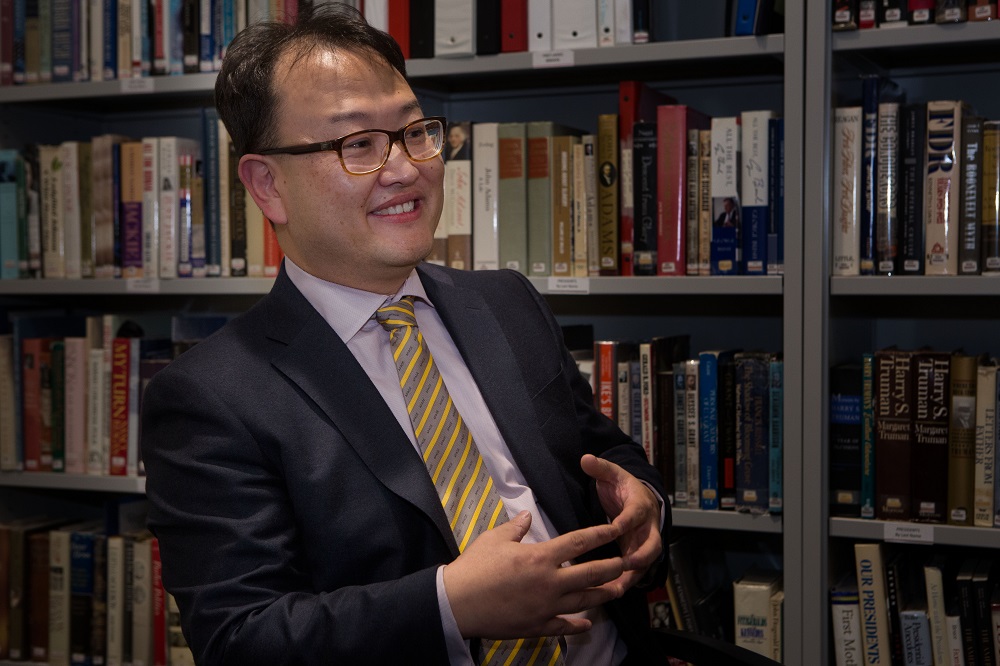
Doo Yeon Kim is a neurologist at Harvard Medical School, where he studies Alzheimer’s disease. Before joining a Zócalo/Smithsonian “What It Means to Be American” panel discussion about creativity in America—“What Does American Ingenuity Look Like?”—he talked in the green room about not going out, not being mainstream, and teaching students to be patient.
What first got you interested in neuroscience?
Its complexity.
What’s your favorite thing to do for fun in Cambridge?
I generally stay at home. There’s a lot of activity on the Internet.
Who inspires you?
Dr. Rudolph Tanzi [a neuroscientist at Harvard].
What does America need to do to get more women and minorities interested in STEM (science, technology, engineering, and math) fields?
It’s about fair opportunity, a fair system.
What’s the hardest part of teaching?
I don’t give a lot of lectures, but I do teach a lot of interns who want to work on scientific projects. The hardest thing is making them understand they’re not going to tackle the big questions at the beginning. It’s boring sometimes, all the small things.
Do you think creativity in science is the same as creativity in the arts?
I don’t see any differences. The creativity is the same. But in science, really a lot of details kick in [following a creative idea]. Execution is most important.
How would your friends have described you when you were 15 years old?
Definitely not mainstream. Maybe a leader, but not like I’m leading everyone—like I’m someone leading a really unique church.
What’s something you have no patience for?
Things that aren’t very logical. Everything should be logically connected. That makes me really impatient, when you’re in a situation where things aren’t logical.
What needs to be the next big breakthrough in Alzheimer’s research?
How to regenerate neurons. Though that is still far off.



